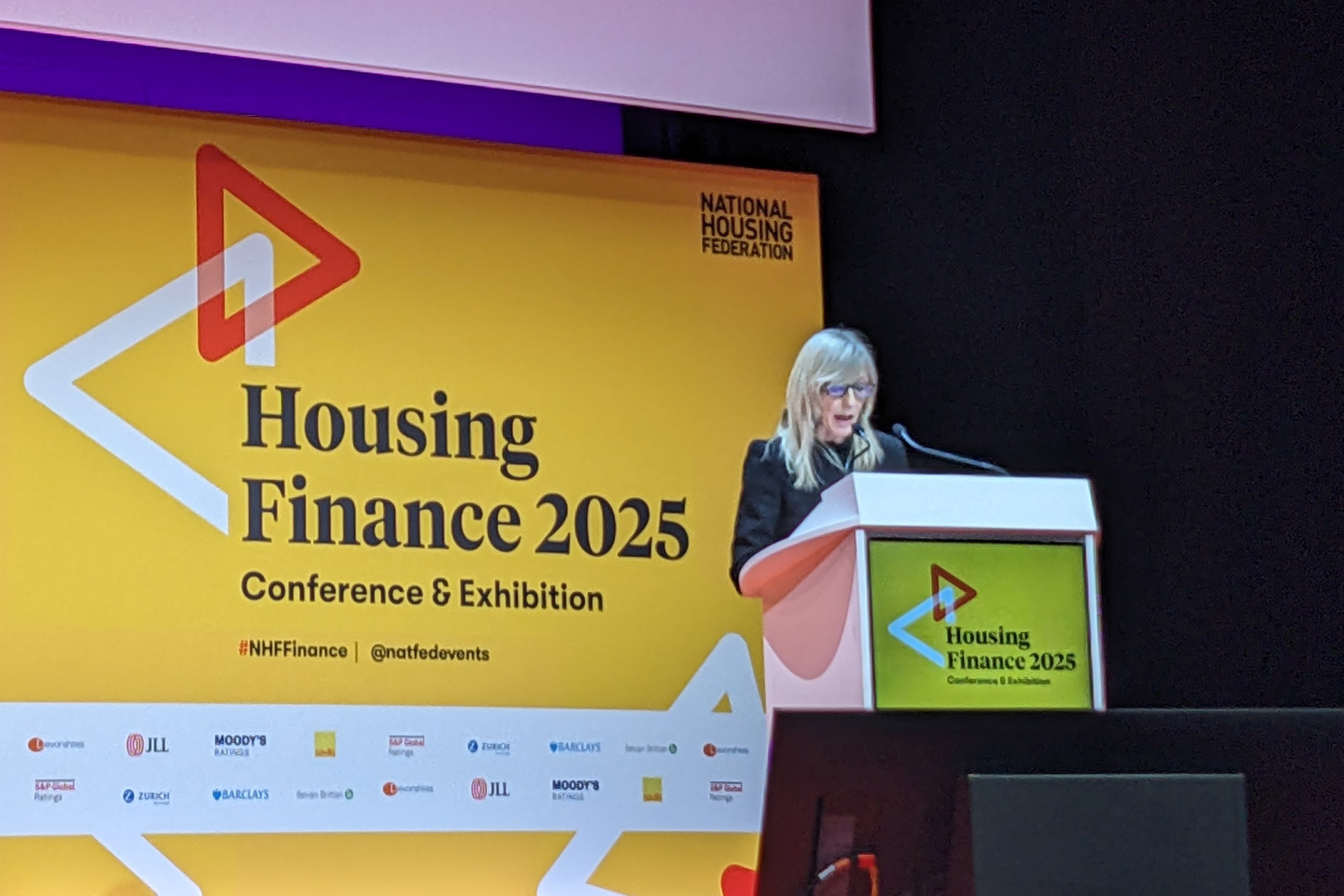Rescue mergers sparking ‘a lot of interest’, law firm says
Landlords are showing a “lot of interest” in rescue mergers and looking at how to carve up portfolios of homes if the provider needing help is too big, a lawyer has said.
Gemma Bell, a partner at Devonshires, said there are people waiting to acquire housing associations in rescue mergers.
Speaking at a joint seminar hosted by Newbridge and Devonshires on 6 May, she said: “There is a lot of interest. There are people that are waiting to do it [rescue mergers]. There are realistic conversations about how big is going to be too big to rescue, and then, what do we do in that situation?
“And there are people having those conversations about do we look at how we split up portfolios and assets and activities so that we could rescue in a slightly different way than we have previously. It’s always been a complete lift and shift.”
This echoes similar messages from the Regulator of Social Housing (RSH).
In March, the RSH’s chief executive Fiona MacGregor said there were “still many doors to knock at” if it was seeking large RPs to embark on rescue mergers. And a couple of years ago, deputy chief executive Jonathan Walters warned that all providers should look at resolution planning.
Sanctuary and Swan
Sanctuary, which owns and manages more than 125,000 homes across England and Scotland, acquired Swan in a rescue merger in February 2023.
Speaking on the same panel session as Ms Bell at the seminar, Ed Lunt, chief financial officer at Sanctuary, said that Sanctuary “absolutely” would consider the rescue of another landlord if in a similar situation to Swan.
But this would involve a careful consideration of the impact on Sanctuary’s customers and its operational and financial capacity, he added.
Mr Lunt said that Sanctuary went ahead with the Swan rescue merger because it would not be crossing two “red lines” it set itself for the acquisition.
These “red lines” were not being downgraded immediately from its top G1 rating as a result of the acquisition, and that it “was not prepared to inherit or be exposed in the imminent period [after the rescue] to a covenant default”.
Mr Lunt said that Sanctuary embarked on the Swan rescue merger to make sure that the long-term tenancies of the Essex landlord’s 9,000 residents were maintained.
He also said the financial benefits of the rescue would be realised over the longer term.
Merger strategies
Mr Lunt said Sanctuary has a growth strategy that includes exploring acquisition opportunities and rescues.
Caroline Moore, chief financial officer at 50,000-home Abri, said that her association does not have a formal merger strategy but that it has a growth strategy which can include mergers.
There was a merger between Abri Group and Silva Homes in 2023, while Abri itself was formed through the merger of Radian and Yarlington in 2019. More recently Abri completed a transaction in December to bring G3/V3 rated Octavia Housing into the group.
Ms Moore said: “We don’t actually have a stated merger strategy. It’s part of our general corporate strategy that we want to grow and we want to create additional value, and if a merger or takeover or an acquisition can bring that value in, then that is absolutely something that we are very open to and we assess and evaluate at the appropriate time.”
Ms Bell said that having too stringent criteria for a merger is not helpful, but boards should understand the process and there should be some red lines for an organisation to filter out proposals initially.
“And then there has to be that conversation quite early on, with at least some of the board saying, ‘do we want to take that any further exploring it? And then that gets you through the next stage of it,” she said.
When asked where the sector would be in 10 years’ time, Ms Bell said that it would be more consolidated.
Elsewhere, Philip Callan, managing director at Philip Callan Associates, said that mergers should be beneficial by unlocking additional capacity, rather than focusing on efficiencies.
He said: “It’s not about efficiencies. Efficiencies come along, but they’re not instrumental in terms of making decisions. It’s all about capacity in our view.”
Communication
When asked on a separate panel session, what is the “single most important ingredient to executing a successful merger”, Helen Hunter, a partner at Addleshaw Goddard, said communication with stakeholders is key.
She said: “I think communication between the RP, between the banks, just really managing that stakeholder communication, why are you doing the merger, what are the drivers for it and why is it a good idea?… I think for me that’s the most important thing.”
David Cleary, managing director and head of housing at Lloyds Banking Group, said it is also important to get the executive team right.
On communication, he said lenders like Lloyds appreciate a call to let them know about an upcoming merger announcement ahead of the RNS publication.
“I think early comms is key, and that call the night before is much appreciated,” he said. “And likewise, if it’s off [the proposed merger], the call before it hits the screen is appreciated as well.”
Rob Griffiths, deputy chief executive at Amplius, which was formed in December through the merger between Grand Union Housing Group and Longhurst Group, said that both housing associations consulted on the merger proposals with both landlords’ residents.
This is despite only new customers needing to be consulted. In this case, the larger Longhurst transferred its engagements to Grand Union because of the pension arrangements.
The consultation had almost 2,000 responses and in total, 47 per cent of all feedback from customers of both organisations was positive or very positive, with only 20 per cent negative or very negative.
Mr Griffiths said that the landlords were “surprised” by the level of responses, which he said were “on the whole supportive”.
“The level of interaction with customers was positive on the whole, and the response rate we were pleased with,” he said. “Both boards were keen to get that customer feedback as part of developing the business case.”
Hear from Ms Moore and other expert speakers including Jonathan Walters, deputy chief executive of the Regulator of Social Hosing, and Matthew Bailes, chief executive of Paradigm, on a session entitled ‘Mergers, rescues and black Swan events: lessons learned’ at the Social Housing Finance Conference on 14 May. For the full agenda and to book the last few tickets, click here.
Sign up for Social Housing’s weekly news bulletin
Social Housing’s weekly news bulletin delivers the latest news and insight across finance and funding, regulation and governance, policy and strategy, straight to your inbox. Meanwhile, news alerts bring you the biggest stories as they land.
Already have an account? Click here to manage your newsletters.
RELATED









